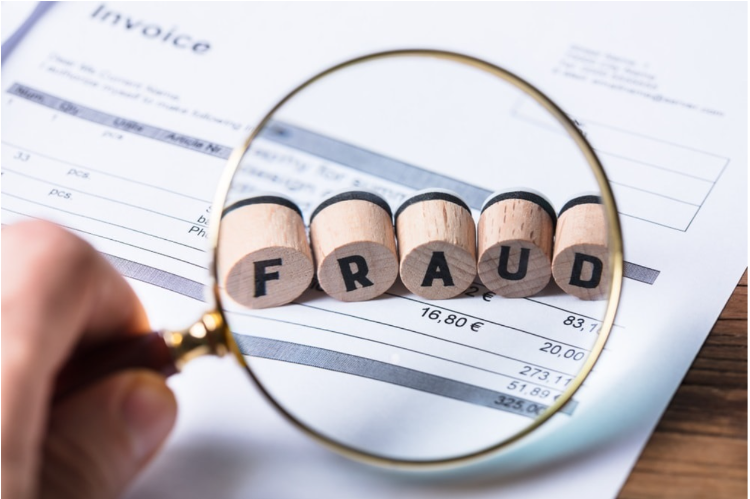Preventing Corporate Fraud
Posted by

 npocpas1
–
npocpas1
–
 npocpas1
–
npocpas1
–


When companies engage in activities that are dishonest or illegal, it is referred to as corporate fraud. Corporate fraud comes in many forms and ranges from falsified accounting to misrepresenting services or products. Without a system in place, it can be challenging to prevent and difficult to catch. Every business should have a strategy in place because avoiding fraud is much simpler than recovering damages after the fact. Creating proactive policies, implementing a system of checks and balances and through physical security, a company may limit the extent to which fraud can take place.
Some of the most common types of corporate fraud include asset misappropriation, falsified accounting, misrepresenting services or products, corruption and cyber fraud.
ASSET MISAPPROPRIATION
This type of fraud is internal and occurs when employees abuse the company resources. This type of fraud is extremely prevalent and can be very sneaky. It may include filing fraudulent reimbursement claims, directly stealing money or directly stealing company property (non-cash assets). The incentive here lies with individual employees and usually has to do with employee satisfaction or their own personal financial situation.
FALSIFIED ACCOUNTING
This type of fraud is also internal and often takes place at a higher level. A company’s financial accounting records may be altered to present an image of high revenue and profits. This false image might be for a variety of reasons, including to hide shortcomings such as a net loss, slow revenue, declining sales, or hefty expenses. The incentive may come from a company’s desire to look good for their investors or potential buyers and/or to protect stock or valuation from dropping.
MISREPRESENTATION OF PRODUCTS/SERVICES
This type of fraud is also internal and often takes place at a higher level. A company with faulty product may aim to disguise flaws and defects. This will happen because the company does not want to invest in repairing or redesigning the product, so instead they deflect. The incentive may come from a lack of finances to correct problems or the worry of driving customers away by admitting a mistake.
CORRUPTION
This type of fraud is internal and occurs when employees engage in schemes to leverage their influence in commercial transactions for personal gain. This action infringes their responsibilities as an employee of the company. Corruption includes bribery, extortion and conflicts of interest.
CYBER FRAUD
This type of fraud is external and employees at all levels should be on the lookout for this type of scam. It may show itself as an email or a call that looks to be from a reputable source but with the ultimate goal of convincing an employee to share sensitive information. As more transactions move to an online system, the risk for cyber fraud increases.
With the risk factor for fraud being so broad, it is important that companies set themselves up for protection. A fraud prevention strategy is critical for any business, large or small. Organizations can lower the risk of fraud by establishing certain procedures and controls.
1. Evaluate Your Employees
The quality of employees who you hire is a very important factor in preventing internal fraud. Constant employee evaluation and monitoring is highly recommended. Managers should connect with their employees and spend time getting to know them. Unethical people tend to exhibit behavioral characteristics that may reveal their disloyalty. It is advised that any employee in a position dealing with money or managing private clients undergo background checks.
2. Internal Controls
Internal controls refer to plans, programs or processes used to manage assets and detect fraud. Implementing internal controls is the easiest way to prevent fraud. These controls allow you to easily detect wrongdoing while also making it harder for the employees to commit fraud. Think of this as checks and balances. Segregation or tasks, and documentation review are essential components of internal control that can help to decrease the risk of fraud.
3. Have a Reporting System
Employees should be trained in the area of fraud prevention. They should also be made aware that management is monitoring any potential fraud. Sometimes just knowing that you are being watched can prevent an employee from committing an unethical act. In addition to this, set up a reporting system so that employees may report suspect behavior or activities by coworkers and customers.
4. Regular Auditing
This one is simple, the more regularly you audit the books, the less likely fraud is to slip through the cracks. Cash, refunds, product returns, inventory management and accounting activities should all be audited on a regular basis. Non-scheduled audits can also aid in the detection of fraud.
5. Trust Your Business Partners
Before entering a commercial partnership with another company or person that demands some amount of trust, make sure you have done your research on that potential business partner. Having references and knowing their name and actual address will be a big barrier to fraud. Research before committing should reveal enough information to determine whether they are an ethical business or not and how long they have been in operation.
| Free forum by Nabble | Edit this page |